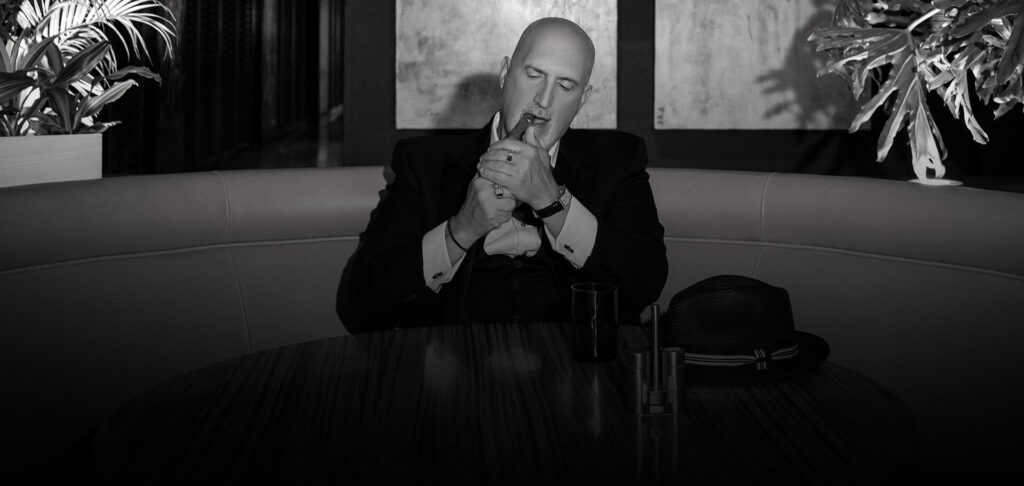[WOW! I'm a bit overwhelmed by the responses to my first two posts in this thread (Heretics File). You see they got caught in my comments spam control, and I just found them. Thanks to everyone who took the time to comment on the first two posts. Instead of answering all the previous comments individual as I usually do I'm going to try to address most of them in this post. I may go back and comment on the comments directly in the next few days ...]
Here we go again, into the mysterious water of learning …
The song remains the same … learning is the basis of all human behavior IMO. So much so that behavior and learning are complex equivalents in the way I approach what learning is about, i.e.: learning is what shows up as expressed behaviors, and visa-versa.
Let me try saying this another way …
When I am working with a client or a group what I am aiming for is for them to have a learning experience. My metric for whether or not they’ve learned is a shift in their behavioral response … IN MY PRESENCE, NOT AFTER THE FACT, i.e.: what they’ve ‘learned’ is the behavior they now express in response to the stimuli present in the environment.
Now for those of you who are particularly interested in learning (or change … transformation … or transformational performance) in any given situation where you are interacting with others YOU ARE IN PART THE STIMULUS THAT THEY ARE RESPONDING TO …
When you know what stimulus you are providing you can know something about how others are responding to it, and you can manipulate yourself to become the stimulus you desire to check regarding their expressed behavior … i.e.: what they have learned in regard to responding to you as stimulus provoking their expressed behavior.
This requires great skill, i.e.: provoking a particular response via the stimulus you are in the environment … and when you have this skill you have taken a huge leap in becoming a transformational change agent in any given environment/situation you encounter.
For just about anyone this is a magnificent skill to possess.
The Skill of Transformational Change
Keeping what is simple, simple …
1)The first step in the skill is knowing what you want, BUT THIS MUST BE PRECEDED BY ACCESSING A STATE IN WHICH YOU ARE CAPABLE OF MAKING WISE CHOICES FIRST.
This state I am referring to is what my mentor, teacher and friend, Roye Fraser, dubbed the Generalized Desired State (GDS) … which I speak to in depth in my book, “The State of Perfection: Your Hidden Code to Unleashing Personal Mastery”
I take his idea and add to it an oscillation with what I refer to as that which is Greater Than Self (GTS), a kind of state of being that is cosmologically oriented and generates bliss in the system. The oscillation gives rise to what I call “INTENT” … which is a massive future oriented directionality that is positively organized in relation to a sense of becoming.
2) The second step is being able to perceive the data/information present in the environment.
This is a learned skill, i.e.: noticing for the signals in the system that are relevant to the patterns that are emergent and unfolding, and becoming able to adumbrate from them the direction the system is headed in from there.
The adumbration allows you to choose the behaviors you’ll express to encourage the system along, redirect it in some other direction, and/or interrupt it.
Choosing your behaviors is a function of recognizing the effect they’ll have in the system based on the way it is currently organized and where it is currently headed, e.g.: is the system positively or negatively organized, i.e.: headed forward to a future based outcome or seeking to limit and protect itself from a potential threat (real or imagined).
3) The third step is choosing the behaviors that will either keep the system organized towards the desired outcome, redirect it towards a desired outcome other than the one where it is currently headed, or to bring the system to a temporary halt to re-assess and reorganize a desirable outcome within it.
This step is a critical skill with regard to being effective at transformational performance. You must have enough self-awareness and resiliency to choose the behaviors that will create the impact you desire.
To access the requisite behaviors demands that you build significant behavioral flexibility and range. This typically requires a degree of self-management and control beyond the scope of most folks, again a learnable skill.
SIMPLE, BUT NOT EASY
In these three simple steps you can move virtually any individual or system to a more desirable outcome via your behavioral expression.
Many people still confuse “simple” and “easy” and they are most definitely NOT the same thing at all.
The basis for expressing yourself in this way is the development of talent built through targeted practice, with a formidable feedback loop that is self-correcting. This is the essence of all cybernetic systems, i.e.: they are self-organizing and self-referential.
A number of authors speak to this, amongst them Malcolm Gladwell in his recent book, “Outliers”
My take on the development of profound talent, i.e.: when the simple becomes easy … second nature … and mastery and virtuosity emerges is that it is organized pre-representationally outside of ordinary cognition.
The behavioral bias required to operate with virtuosity is organized first and foremost as cerebellar conditioning/learning, NOT cerebral conditioning/learning. However, most people seek cerebral conditioning/learning and knowledge-based when they are seeking to create a change in their behaviors.
This default to cerebral conditioning/learning is a product of bad education, or poor past learning about how to learn. They have come to think of learning as knowledge-based (or epistemological). In all the work I do with clients and groups learning is cerebellar and behaviorally based, as I stated above.
Let’s simplify again … what I am championing is strategic behavioral transformation leading to massive increases in the quality of performance.
My clients come to me and work with me because they are seeking to express new behaviors to existing situations they encounter … behaviors they currently don’t have access to readily now.
This is a simple proposition … currently my clients find they have a default response that isn’t generating the outcome/s they desire. This response is always behavioral (taking into account that my basis for what I refer to as behavior includes cognition, i.e.: decision-making and things like speech acts as well as physical responses).
The domain of my mastery is helping clients create alternative behavioral choices that are more strategically wellformed with regard to producing the outcomes they most desire. These outcomes can (and often are) in the form of business results, or relationships … or as simple as experiencing themselves in situations the way they’d like to in an ongoing way.
Instead of focusing on feelings, or thinking … we direct our attention together to how they respond and what they do as a result of the way of being they choose. For example rather than choosing to “be happy” they choose to act in a way that creates a desired outcome regardless of how they feel while doing it … BUT ONE THAT IS INHERENTLY CONSISTENT WITH WHO THEY MOST WANT TO BE IN THE WORLD.
This is the ‘secret’ of all elite performers, i.e.: the ability to choose to act in a way that is consistent with what they most value … often despite the immediate feeling they are experiencing.
-
Every athlete that has ever improved their performance to become a world-class competitor has chosen to train when they didn’t feel like training, or when training was uncomfortable or even painful in the moment. The ability to take control of your behavior despite how you feel is critical to achieving this level of success.
-
Anyone who is in a rewarding and lasting relationship has chosen to act in a way that is consistent with what they want to be true of the relationship, even when they felt otherwise in the moment. The ability to reign in a reflex response that would damage the relationship is a critical skill to creating the intimacy and trust present in these kinds of relationships.
-
Parents who wish to raise resilient, resourceful, independent children must be able to choose their behavioral responses instantly to send the message they intend despite what may be an emotional response to what is going on in the moment. Often parents must override their own fatigue and distraction to focus on what is best for their child if they want to encourage the behaviors they desire for their children.
This list could go on and on, however the pattern remains the same … or the song as it may be …
Best,
Joseph Riggio, Ph.D.
Princeton, NJ
PS – If you’d like to speak with me about working with me privately, or in a group to improve your behavioral performance you can register for a private, one-to-one complimentary conversation with me using this form and Niki my Executive Assistant will get back to you to schedule a time for us to speak:



